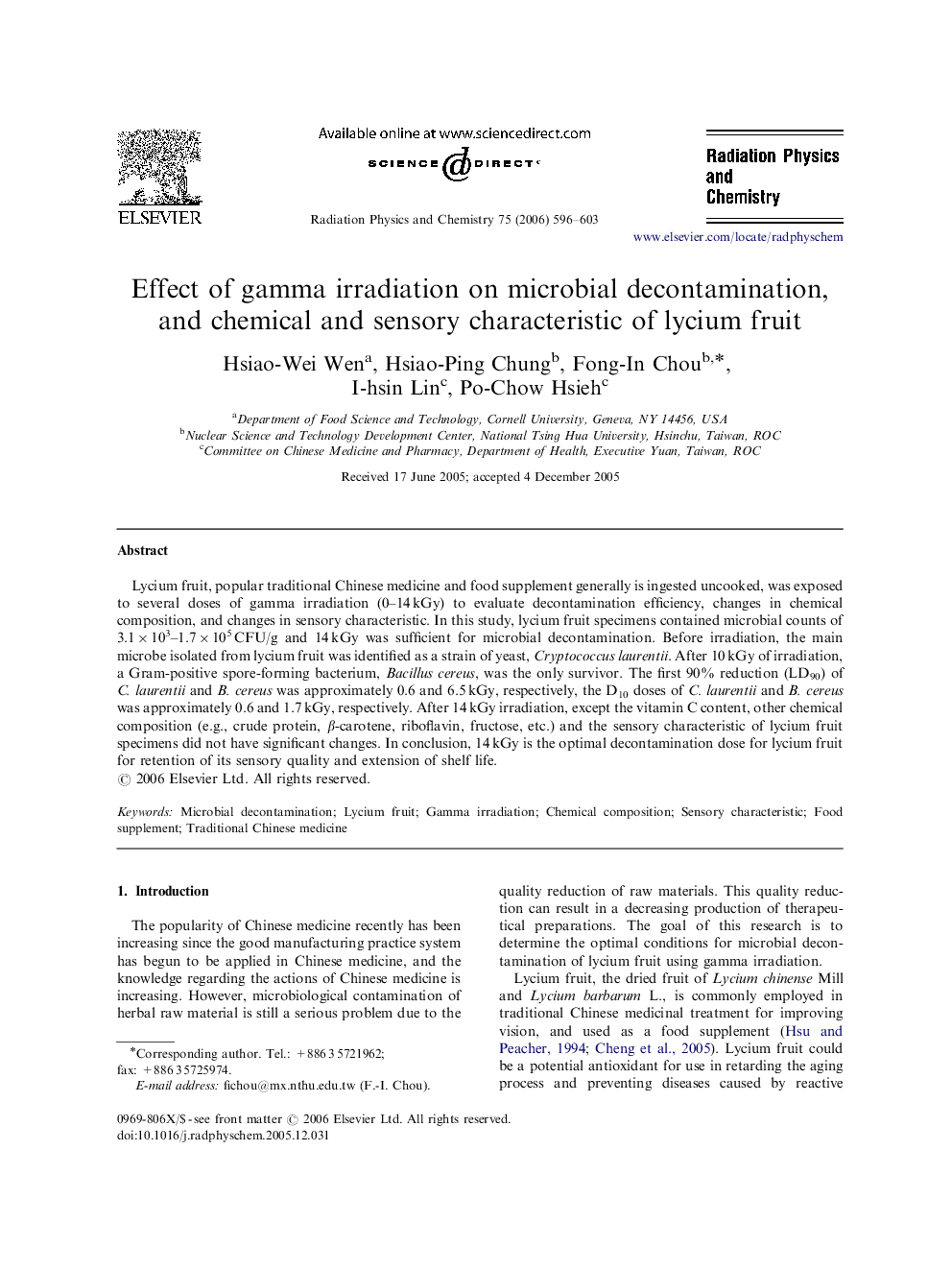| Article ID | Journal | Published Year | Pages | File Type |
|---|---|---|---|---|
| 1887736 | Radiation Physics and Chemistry | 2006 | 8 Pages |
Lycium fruit, popular traditional Chinese medicine and food supplement generally is ingested uncooked, was exposed to several doses of gamma irradiation (0–14 kGy) to evaluate decontamination efficiency, changes in chemical composition, and changes in sensory characteristic. In this study, lycium fruit specimens contained microbial counts of 3.1×103–1.7×105 CFU/g and 14 kGy was sufficient for microbial decontamination. Before irradiation, the main microbe isolated from lycium fruit was identified as a strain of yeast, Cryptococcus laurentii. After 10 kGy of irradiation, a Gram-positive spore-forming bacterium, Bacillus cereus, was the only survivor. The first 90% reduction (LD90) of C. laurentii and B. cereus was approximately 0.6 and 6.5 kGy, respectively, the D10 doses of C. laurentii and B. cereus was approximately 0.6 and 1.7 kGy, respectively. After 14 kGy irradiation, except the vitamin C content, other chemical composition (e.g., crude protein, β-carotene, riboflavin, fructose, etc.) and the sensory characteristic of lycium fruit specimens did not have significant changes. In conclusion, 14 kGy is the optimal decontamination dose for lycium fruit for retention of its sensory quality and extension of shelf life.
